
Dr Helen Adams
Senior Lecturer in Disaster Risk Reduction and Climate Change Adaptation
Biography
Helen is an established expert in the field of climate-related migration with more than 15 years’ experience in adaptation and resilience in research, policy, non-governmental organisations, teaching and engagement settings. She has been in the Department of Geography at King’s since 2015, and from 2021-2022 was seconded to the UK Cabinet Office during COP26.
Helen is leading the new £5 million Maximising UK Adaptation to Climate Change (MACC) Hub, funded by UK Research & Innovation (UKRI) and the Department for Food and Rural Affairs. The MACC Hub coordinates and translates knowledge on “what works” in climate change adaptation to advance local and national action across the UK. She also co-Directs the King's Centre for Integrated Research in Risk and Resilience (CIRRR)
Helen joined King's from the University of Exeter (UEA), where she worked on the linkages between human well-being and natural resource dependence in marginal populations of Bangladesh, as part of the Ecosystems Services for Poverty Alleviation (ESPA) funded project, ‘Assessing Health, Livelihoods, Ecosystem Services and Poverty Alleviation in Populous Deltas’.
She completed her PhD at the Tyndall Centre for Climate Change Research at the University of East Anglia (UEA) in 2012. Her thesis examined the role of the environment in migration decision-making in rural Peru.
Before joining UEA, Helen worked on adaptation to climate change in the Climate Change Expert Group of the Organisation for Economic Cooperation and Development (OECD) and the United Nations Framework Convention on Climate Change (UNFCCC), particularly on the Nairobi work programme.
Qualifications
- Postgraduate Certificate in Academic Practice, King's College London (2016)
- PhD in Environmental Social Science, University of Exeter (2012)
- Master of Research in Environmental Social Science, University of Exeter (2008)
- BSc in Natural Sciences, University of Durham (2005)
Research
- Migration under environmental change
- Immobility and place attachment
- Transformational adaptation and resilience
- Security implications of climate change
- Ecosystem services and multi-dimensional wellbeing
Helen leads research in the field of climate-related migration, applying place attachment frameworks to elaborate the non-economic, emotional reasons why people decide to stay.
Her current research focuses on building habitability under climate change by supporting individuals in reconceptualising their relationship to place.
Science policy interface
Helen is involved with high profile and global initiatives to ensure that the best available science informs action on climate change. She was a lead author on the Intergovernmental Panel on Climate Change (IPCC) Working Group II report on Impacts, Adaptation and Vulnerability, in Chapter 7 on Health, Wellbeing and the Changing Structure for Communities, and the Summary for Policy Makers.
She was also an author on the UK’s third Climate Change Risk Assessment (CCRA3) that informs the UK’s National Adaptation Programme. She was a contributing Author to Working Group II of the Intergovernmental Panel on Climate Change’s fifth assessment report, on Chapter 12 Human Security.
From 2021 to early 2022, Helen was seconded to the UK Cabinet Office to lead on science engagement for the COP26 Presidency where she engaged international science institutions in support of the UNFCCC’s Paris Agreement.
Engagement
Sharing research findings and engaging broad populations on the themes of climate adaptation and resilience is an important part of Helen’s remit. She has worked with artists to create alternative outputs from her research projects, as well as those targeted at practitioners, for example, a graphic novel based on research with Syrian refugees and their host communities.
She regularly appears in television, radio and print media and has been interviewed on a range of podcasts discussing her work (Climate analysis for Green Blob, Climate change and refugees for BBC Radio 3, COP26 analysis for King's, and adaptation and resilience for the UK’s FCDO).
Helen has recently joined the board of Greenpeace UK to support organisations in campaigning and raising public support for adaptation and mitigation action on the scale called for by the recent IPCC reports.
Teaching
Helen teaches on climate change adaptation and mitigation, disaster risk reduction and resilience, and human mobility at undergraduate and post-graduate level. She currently has four PhD students:
- Rachel Harrington-Abrams, working on climate-related relocation;
- Jessica Lillquist, working on nature based solutions for coastal resilience;
- Atmaja Gohain Baruah, working on climate-related mobility and wellbeing in Assam, India, and Bangladesh;
- Richard Kalu, working on climate-related mobility and indigeneity.
Previous students:
- Alejandro Barcena (2020), Reassembling Risk and Urban Identities The Deployment of Dakar’s Neoliberal Reform;
- David Smedley (2019), Overcoming dry spells through low cost adaptations among; small holder farmers in the Volta, assessing biophysical and social viability.
Resources
Open access datasets associated with Helen’s research can be downloaded from the UK Reshare:
- Mechanisms and dynamics of wellbeing-ecosystem service links in the southwest coastal zone of Bangladesh. DOI: 5255/UKDA-SN-852356
- Spatial and temporal dynamics of multidimensional well-being, livelihoods and ecosystem services in coastal Bangladesh. DOI: 5255/UKDA-SN-852179
- Precarious Places: Social Cohesion, Wellbeing and Place Attachment in Refugee-Host interactions. DOI: 5255/UKDA-SN-853108
Further details
Research
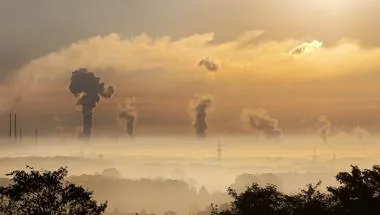
Centre for Integrated Research in Risk & Resilience
Bringing together research disciplines to shape a critical perspective on resilience and its application as a concept.

Geopolitics and Contested Development research group
Exploring geopolitics and contested development as locally contingent and globally interconnected processes shaped by the politics of colonialism.
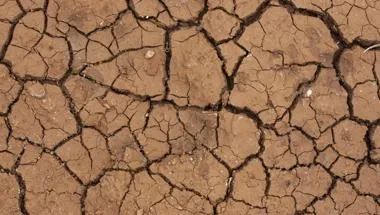
Risk, Hazard & Society research group
Advancing understanding of risk and perception, as well as communication and regulation in a range of environmental, social and country contexts.

King's Climate Research Hub
Studying climate change through the relationship between science, policy and culture.
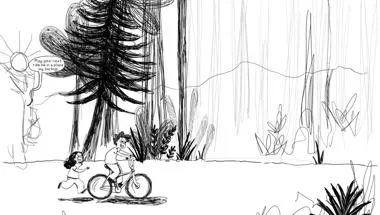
Precarious Places: social cohesion, resilience and place attachment of refugees in Lebanon
Examining place attachment in refugees and their host communities to inform programming on social inclusion and conflict mediation.
Project status: Completed

Environmental Security research group
The Environmental Security research group brings together scholars from the security community and scholars working on issues of environmental security.

Climate & sustainability researchers at King’s
King's researchers working across climate and sustainability
News
Can we come to terms with the loss that climate change may bring, without giving up?
By facing devastating climate impacts, a new project is set to find ways to rebuild with newfound hope and optimism
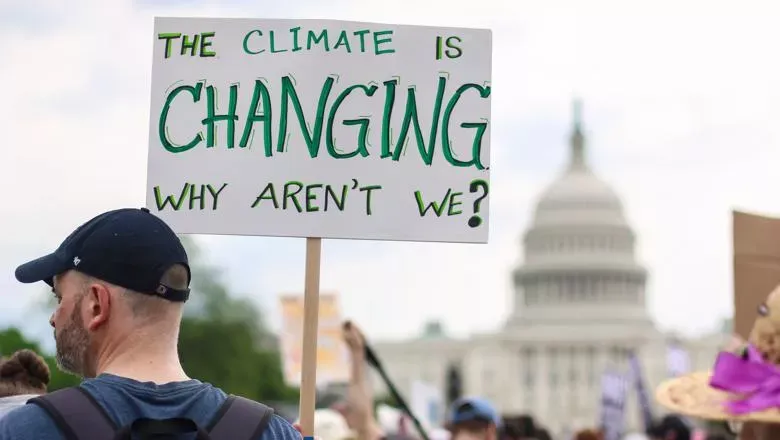
Three SSPP researchers win prestigious EU grants
£4.5m of ERC grants will go to researchers in the Faculty of Social Science & Public Policy

New installation on the Strand will imagine a climate-positive mythical world
Acclaimed design studio Superflux and King’s Culture present 'The Quiet Enchanting', an installation inspired by King’s climate and sustainability research

Helping humanity limit global warming can enable adaptation too, urges King's IPCC expert
The latest Intergovernmental Panel on Climate Change (IPCC) report outlines what the world can do to mitigate climate change – that is, what we can do between...
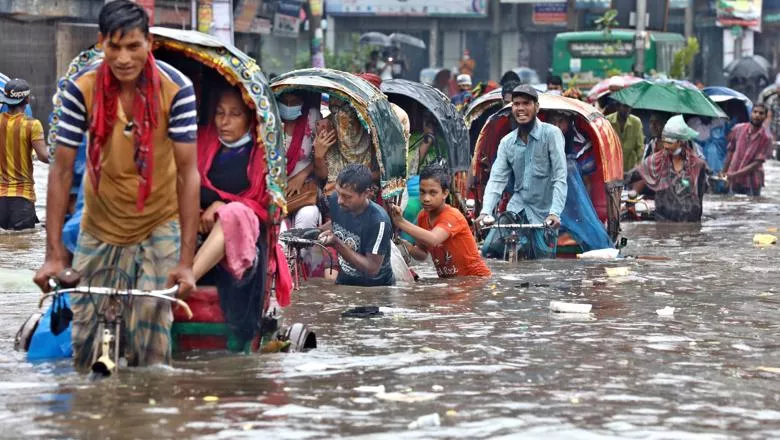
Geography academics lead authors on latest IPCC report: climate change affects all forms of life
Climate experts and Geography academics, Dr Helen Adams and Professor Mark Pelling are lead authors on the latest Intergovernmental Panel on Climate Change...
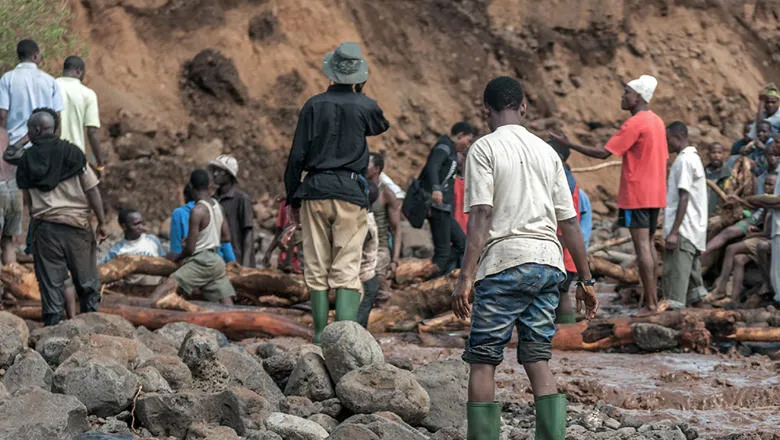
Transparency around science can help 'Build Back Better' from COVID-19
New paper led by King’s academics says political and uneven access to scientific knowledge affected public trust and paved the way for ‘alternative knowledge’.
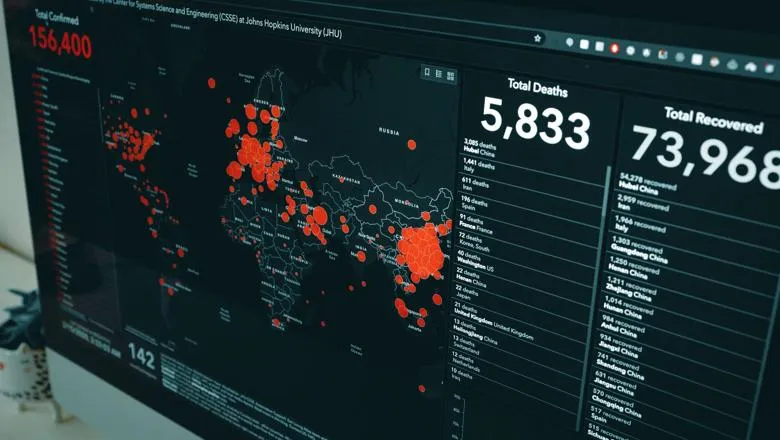
King's researchers share expertise as part of the COP26 global climate change summit
Experts on climate change, wildfires, adaptation and climate law are participating in events at the COP26 meeting.
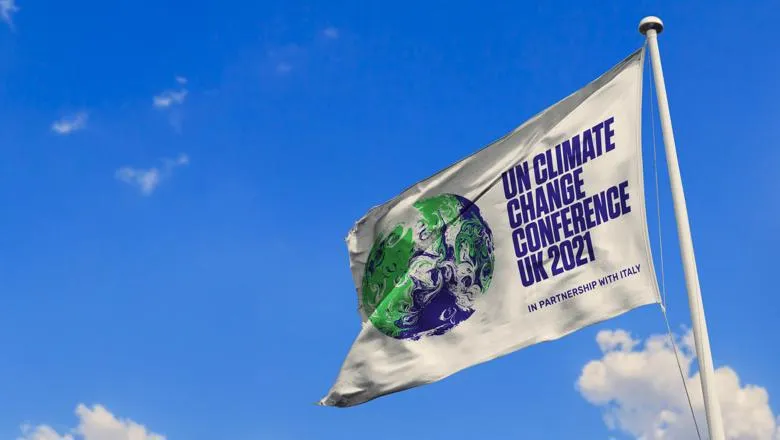
"We can limit warming to 1.5c": Geography academic lead author on latest IPCC report
Leading climate expert and Geography academic, Dr Tamsin Edwards has contributed as a lead author on the recent IPCC assessment report, which cements the...
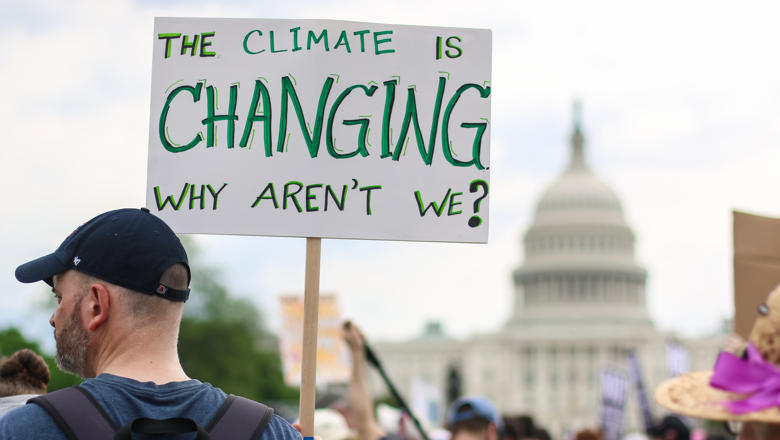
Authoring the 6th IPCC Assessment Report
Professor Mark Pelling is an author on the 6th IPCC Assessment Report. He explains how it's produced and how he's involved.

Events
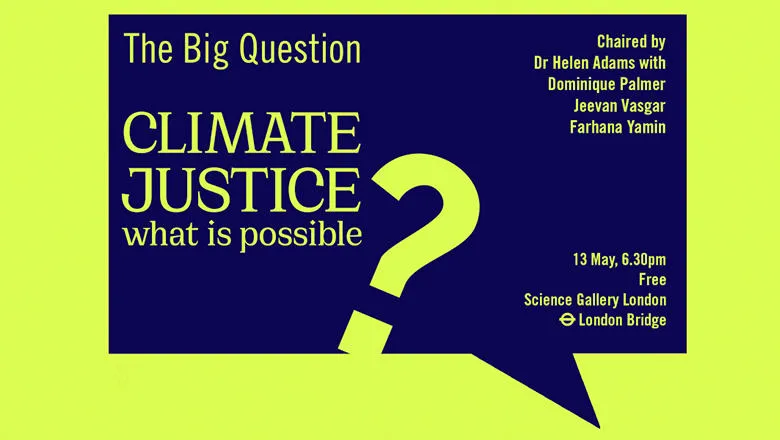
Climate Justice: What is Possible?
Join our panel of climate experts, activist, journalist and lawyers who will explore global collaboration and creating a fairer climate futures for all.
Please note: this event has passed.

CIRRR Christmas Lecture - Resilient cities: Risk, limits and thresholds
A discussion between Mark Pelling and CIRRR Directors Helen Adams and Tom Matthews will provide a critical take on some of the challenges to urban...
Please note: this event has passed.

'The World Made Me': Candid conversations with researchers
Join us for the launch of 'The World Made Me', a new video series from the School of Global Affairs exploring the things that inspired our academics in their...
Please note: this event has passed.
Research

Centre for Integrated Research in Risk & Resilience
Bringing together research disciplines to shape a critical perspective on resilience and its application as a concept.

Geopolitics and Contested Development research group
Exploring geopolitics and contested development as locally contingent and globally interconnected processes shaped by the politics of colonialism.

Risk, Hazard & Society research group
Advancing understanding of risk and perception, as well as communication and regulation in a range of environmental, social and country contexts.

King's Climate Research Hub
Studying climate change through the relationship between science, policy and culture.

Precarious Places: social cohesion, resilience and place attachment of refugees in Lebanon
Examining place attachment in refugees and their host communities to inform programming on social inclusion and conflict mediation.
Project status: Completed

Environmental Security research group
The Environmental Security research group brings together scholars from the security community and scholars working on issues of environmental security.

Climate & sustainability researchers at King’s
King's researchers working across climate and sustainability
News
Can we come to terms with the loss that climate change may bring, without giving up?
By facing devastating climate impacts, a new project is set to find ways to rebuild with newfound hope and optimism

Three SSPP researchers win prestigious EU grants
£4.5m of ERC grants will go to researchers in the Faculty of Social Science & Public Policy

New installation on the Strand will imagine a climate-positive mythical world
Acclaimed design studio Superflux and King’s Culture present 'The Quiet Enchanting', an installation inspired by King’s climate and sustainability research

Helping humanity limit global warming can enable adaptation too, urges King's IPCC expert
The latest Intergovernmental Panel on Climate Change (IPCC) report outlines what the world can do to mitigate climate change – that is, what we can do between...

Geography academics lead authors on latest IPCC report: climate change affects all forms of life
Climate experts and Geography academics, Dr Helen Adams and Professor Mark Pelling are lead authors on the latest Intergovernmental Panel on Climate Change...

Transparency around science can help 'Build Back Better' from COVID-19
New paper led by King’s academics says political and uneven access to scientific knowledge affected public trust and paved the way for ‘alternative knowledge’.

King's researchers share expertise as part of the COP26 global climate change summit
Experts on climate change, wildfires, adaptation and climate law are participating in events at the COP26 meeting.

"We can limit warming to 1.5c": Geography academic lead author on latest IPCC report
Leading climate expert and Geography academic, Dr Tamsin Edwards has contributed as a lead author on the recent IPCC assessment report, which cements the...

Authoring the 6th IPCC Assessment Report
Professor Mark Pelling is an author on the 6th IPCC Assessment Report. He explains how it's produced and how he's involved.

Events

Climate Justice: What is Possible?
Join our panel of climate experts, activist, journalist and lawyers who will explore global collaboration and creating a fairer climate futures for all.
Please note: this event has passed.

CIRRR Christmas Lecture - Resilient cities: Risk, limits and thresholds
A discussion between Mark Pelling and CIRRR Directors Helen Adams and Tom Matthews will provide a critical take on some of the challenges to urban...
Please note: this event has passed.

'The World Made Me': Candid conversations with researchers
Join us for the launch of 'The World Made Me', a new video series from the School of Global Affairs exploring the things that inspired our academics in their...
Please note: this event has passed.
